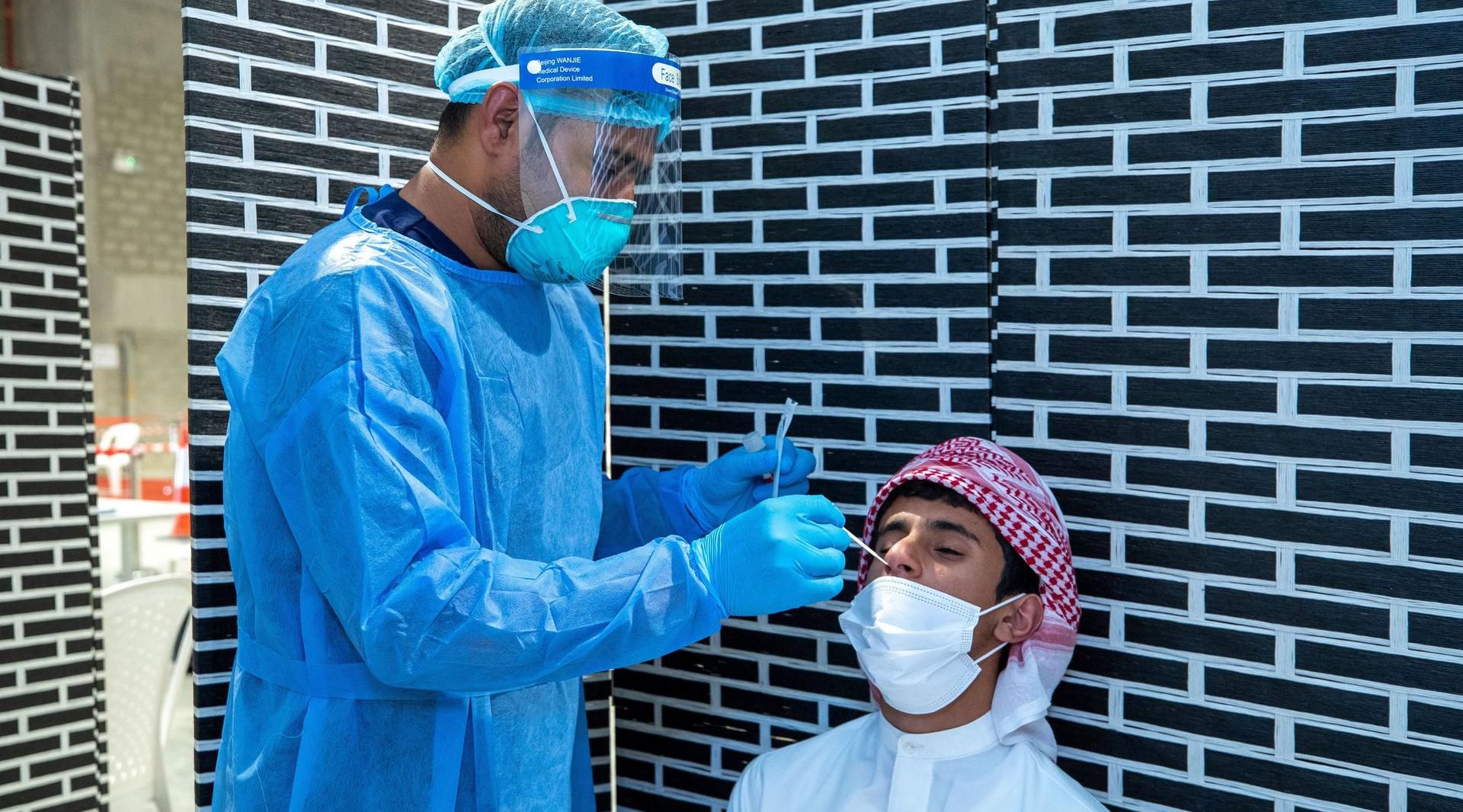UAE hospitals and medical clinics are witnessing a surge in demand for COVID-19 PCR testing as people are making summer holiday plans and commuters are complying with border protocols to travel across the emirates. Employers are also undertaking extensive testing campaigns to ensure that workers are free of COVID-19 before resuming work.
One medical centre in Al Ain reported a spike from 650 to over 1,000 in the number of daily tests after the long break for Eid Al Adha. Abu Dhabi-based VPS Healthcare also recorded a rise in demand for testing post-holiday break.
Medical centres and clinics across the UAE are bracing for the high demand for pre-travel PCR testing as individuals and families plan foreign travel during the summer holidays. At the same time, children are also required to be tested before schools reopen for the next academic year.
UAE doctors noted that the changes in safety requirements for entry to Abu Dhabi have also led to a spike in demand for PCR testing. With effect from July 19, people entering Abu Dhabi are required to present a negative PCR test result taken within 48 hours or a DPI test with a validity of 24 hours even after being fully vaccinated.
Speaking with the media, Dr Iajaz Ahmed Hagalwadi, medical director at NMC Speciality Hospital at Al Ain, stated that the hospital has increased its lab capacity considering the increase in demand for PCR tests. The hospital has also opened a new, exclusive and spacious tent for Covid-19 screening.
“We believe the trend will continue for some time, owing to increased awareness and regulatory mandates," Dr Ahmed added.
On average, the UAE health sector is conducting more than 250,000 tests each day with the aim of curbing the spread of the virus.
With workers returning to offices, regulatory screenings mandated by the Department of Health in Abu Dhabi have led to a rise in the number of tests conducted per day from 600 to 800 this week. NMC Health reported a rise from 400 tests to 650 in a day at their on-site company screening programmes as employees start returning to work.
A large number of workers have returned to offices after working from home for months during the lockdown. Significantly, staff in healthcare, hospitality, food production industry, and supermarkets are contributing to the rise in demand for testing as they return to workplaces.
Earlier in March, the Ministry of Human Resources and Emiratisation mandated unvaccinated employees in hotels, restaurants, transportation companies, laundries, beauty salons and hairdressers to take PCR tests every 14 days.
Dr Hagalwadi added that school vacations are another reason for the rise in demand for testing, noting that UAE families are travelling back to their home countries during vacations. According to travel protocols issued by the authorities, it is mandatory for people to present a negative COVID-19 report performed less than 72 hours before boarding the flight.
In view of the ongoing developments in COVID-19, doctors highlighted that a new trend is being witnessed. A number of nasal swabs taken in some suspected COVID-19 positive patients delivered negative results.
“We are seeing a phenomenon now where the virus is not concentrated in the nose and as a result, we are not seeing a positive test in a patient with symptoms in a first, second or even third PCR test,” said Dr Fadi Baladi, medical director at Burjeel hospital group.
In this regard, doctors are considering a throat swab to get a better clinical picture.
"Patients think it is safe to return to work and no longer isolate after a negative test result, when in fact they are carrying the virus. A throat swab should be another consideration because, when the clinical picture suggests COVID-19, that has to be respected," the doctor added.
Doctors also urged to wait and repeat the test if the patient is experiencing myalgia, fever or other symptoms of COVID-19, but the PCR test result comes negative.
 AR
AR UR
UR
